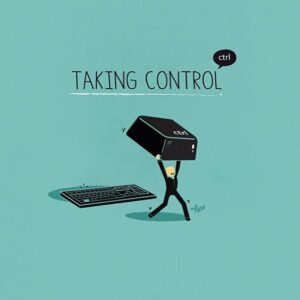Digital Citzenship

I don’t remember if my teachers ever taught me about cyber safety. I know I for sure never learned about digital citizenship, as this class was the first time I learned about it. I only remember learning about cyber safety was not sending money to the Nigerian prince emails. My school took a hands-off approach to teaching about cyber safety and left parents in charge of educating their children. My parents didn’t know much about the risks of the internet, so I didn’t have any rules or guidelines regarding internet use.
As I got older, I realized there were many risks to using the internet. I try to teach students about the importance of being safe. I have to admit, sometimes I use scare tactics when talking about the internet. There are many great things about the online world, but there are also many risks with being online. But I’m learning that there is more to cyber safety and that we must teach our students about digital citizenship.
Some ideas for increasing digital citizenship in the classroom are:
- Using a variety of technology and online resources (i.e., https://mathigon.org/ & SmartBoard)
- A blog assignment to teach students about online communication
- Having clear classroom expectations regarding acceptable behaviour online
- Media literacy lessons
- Taking technology breaks and spending time outdoors
- Cyberbullying and Sexting sessions by a School Resource Officer
- The use of secure networks and knowing when something is spam or junk mail
Teaching children how to be responsible online and modelling that behaviour is most important. I didn’t realize that Saskatchewan has a Digital Citizenship Continuum Framework for students in Kindergarten through Grade 12. I will be mindful of this as I lesson plan. Technology and digital citizenship can be part of a cross-curricular, integrated lesson. Conversations surrounding digital literacy are key and can be integrated throughout subjects.

Technology is an excellent resource in the classroom, but I think it is equally important to utilize tech-free time and spend time outdoors. As much as we need to teach responsible technology use, we must also teach students how to socialize in person. In-person social skills are a great transferable skill to the online world. Teaching students about respecting others and communicating properly is important online and in real life.